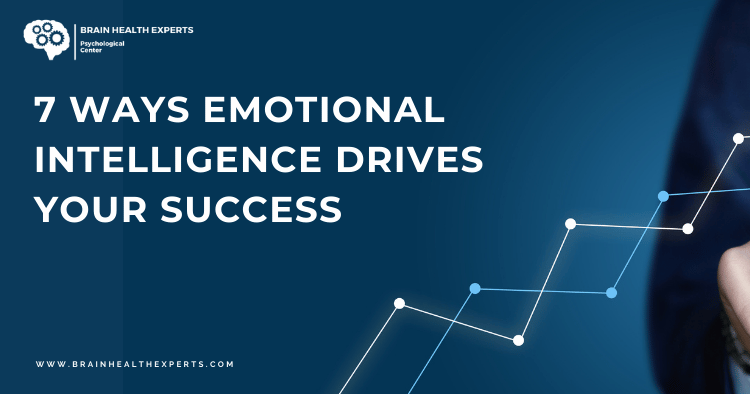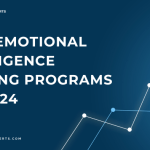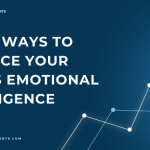Table of Contents
- Introduction
- Understanding Emotional Intelligence
- 1. Enhances Self-Awareness
- 2. Improves Communication Skills
- 3. Fosters Empathy
- 4. Increases Resilience
- 5. Boosts Leadership Skills
- 6. Strengthens Relationships
- 7. Facilitates Conflict Resolution
- Conclusion
- FAQs
Introduction
In today’s fast-paced world, technical skills and knowledge are no longer the sole determinants of success. Emotional Intelligence (EI) has emerged as a crucial factor that can significantly impact personal and professional growth. This article explores 7 ways emotional intelligence drives your success, helping you understand how nurturing this skill can lead to a more fulfilling life.
Understanding Emotional Intelligence
Emotional Intelligence is the ability to recognize, understand, and manage our own emotions and the emotions of others. It comprises five key components:
- Self-awareness
- Self-regulation
- Motivation
- Empathy
- Social skills
Research has shown that individuals with high emotional intelligence can navigate social complexities, lead and motivate others, and excel in their personal and professional lives. For a deeper dive into EI, consider checking out this insightful Harvard Business Review article.
1. Enhances Self-Awareness
Self-awareness is the cornerstone of emotional intelligence. It involves understanding your own emotions, strengths, weaknesses, values, and how they affect your thoughts and behavior.
Why It Matters:
- Informed Decision-Making: When you are self-aware, you can make decisions that align with your values and goals.
- Personal Growth: Acknowledging your strengths and weaknesses allows you to focus on areas needing improvement.
Consider keeping a journal to reflect on your daily emotions and decisions. This practice can help you identify patterns and triggers in your behavior. For related insights, see 10 tips to overcome negative thought patterns today.
2. Improves Communication Skills
Effective communication is essential in any relationship, whether personal or professional. Emotional intelligence enhances your ability to convey your thoughts and feelings clearly and to understand the emotions behind others’ words.
Benefits:
- Clarity and Precision: You can articulate your thoughts more effectively, reducing misunderstandings.
- Active Listening: High EI individuals are better listeners, which fosters deeper, more meaningful conversations.
Visual Element:
| Communication Skill | Impact of EI |
|---|---|
| Clarity | Improves understanding |
| Empathy | Enhances connection |
| Feedback | Builds trust |
Effective communication not only enhances professional relationships but also nurtures personal connections, making it a vital skill in every aspect of life.
3. Fosters Empathy
Empathy is the ability to put yourself in someone else’s shoes. It is a critical component of emotional intelligence that can dramatically influence your relationships.
The Importance of Empathy:
- Builds Trust: When others feel understood, they are more likely to trust and connect with you.
- Encourages Collaboration: Empathetic individuals often create a more inclusive and cooperative work environment.
Practice empathy by asking open-ended questions and giving others your full attention. This will help you understand their perspectives better. To foster positivity in your interactions, refer to 10 ways positive thinking transforms your relationships.
4. Increases Resilience
Resilience is the ability to bounce back from setbacks. Emotional intelligence enhances resilience by helping you manage stress and emotions effectively.
Key Points:
- Better Coping Strategies: EI enables you to recognize when you’re stressed and implement coping mechanisms.
- Positive Outlook: Individuals with high emotional intelligence tend to maintain a more positive outlook, even in challenging situations.
For more on building resilience, check out the American Psychological Association’s guide. Additionally, explore 10 ways positive thinking boosts resilience in tough times.
5. Boosts Leadership Skills
Leaders with high emotional intelligence are often more successful in inspiring and motivating their teams.
Why EI is Essential for Leaders:
- Vision and Motivation: Emotionally intelligent leaders can communicate their vision effectively and motivate their teams to achieve it.
- Conflict Management: EI helps leaders navigate and resolve conflicts more effectively.
Visual Element:
| Leadership Trait | Role of EI |
|---|---|
| Visionary | Inspires teams |
| Decisive | Manages stress |
| Supportive | Builds morale |
Effective leadership is not just about making decisions; it’s about understanding and connecting with your team.
6. Strengthens Relationships
Emotional intelligence plays a vital role in building and maintaining healthy relationships. It fosters trust and mutual respect, essential for any relationship’s success.
Benefits of Strong Relationships:
- Increased Satisfaction: Positive relationships contribute to overall happiness and satisfaction in life.
- Networking Opportunities: Strong interpersonal skills can open doors to new personal and professional opportunities.
Invest time in nurturing your relationships by being present and showing appreciation for others. For tips on how positive thinking enhances emotional well-being, visit 10 ways positive thinking boosts emotional well-being.
7. Facilitates Conflict Resolution
Conflict is inevitable in any setting, but how we handle it makes all the difference. Emotional intelligence equips you with the tools to navigate conflict gracefully.
Conflict Resolution Skills:
- Understanding Emotions: Recognizing your own and others’ emotions can lead to more effective conflict resolution.
- Finding Common Ground: High EI helps you approach conflicts with empathy, allowing for collaborative solutions.
For strategies on conflict resolution, refer to this Mediation and Conflict Resolution guide. You may also find useful techniques in 10 powerful cognitive behavioral techniques to reduce stress.
Conclusion
Emotional intelligence is a powerful tool that can propel you toward success in various aspects of life. By enhancing your self-awareness, communication skills, empathy, resilience, leadership abilities, relationships, and conflict resolution skills, you can thrive both personally and professionally. Start nurturing your emotional intelligence today, and watch how it transforms your journey toward success!
FAQs
What is emotional intelligence?
Emotional intelligence is the ability to recognize, understand, and manage your own emotions and the emotions of others.
How can I improve my emotional intelligence?
You can improve your emotional intelligence through practices like self-reflection, active listening, empathy exercises, and seeking feedback from others.
Why is emotional intelligence important for leaders?
Leaders with high emotional intelligence can inspire, motivate, and manage their teams effectively, leading to improved performance and a positive work environment.
Can emotional intelligence be developed?
Yes, emotional intelligence can be developed over time through practice and conscious effort.
By focusing on these elements of emotional intelligence, you set yourself up for greater success in all areas of life! For additional resources, explore top 10 must-read books on emotional intelligence 2024 and top 7 emotional intelligence training programs 2024.





